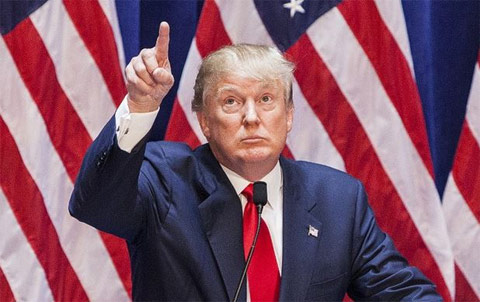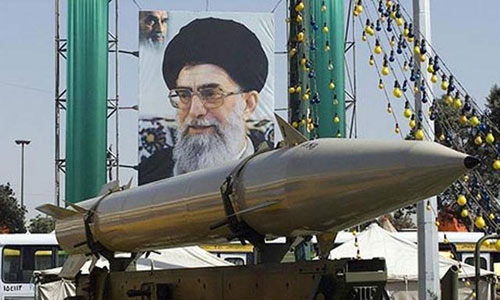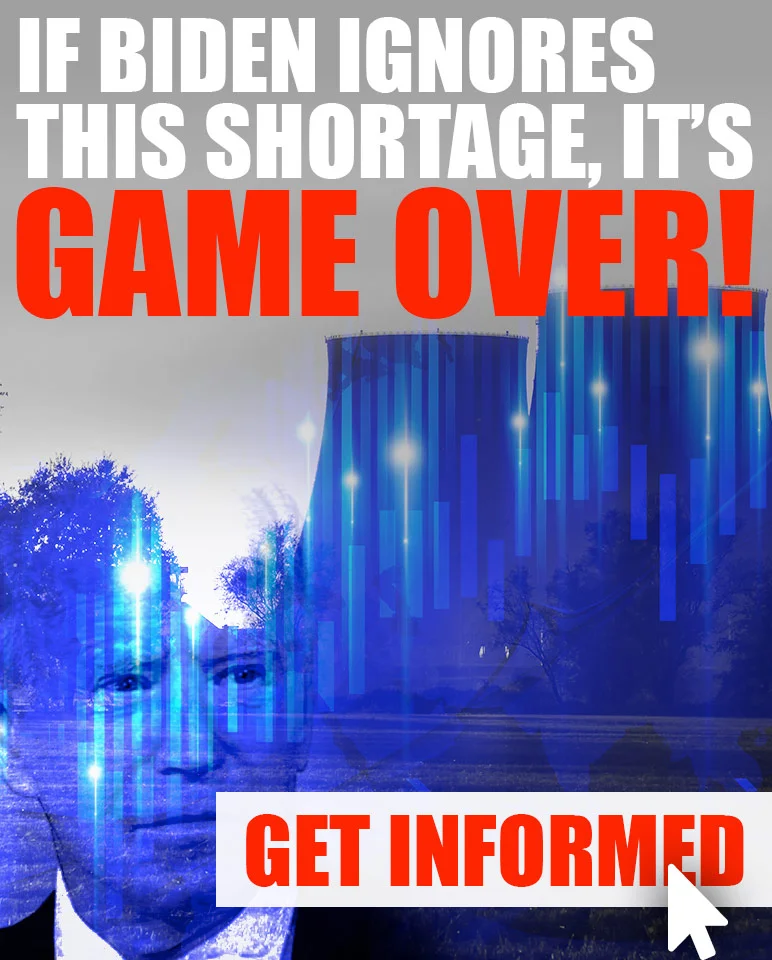This article was originally published by James Bovard at The Mises Institute.

Protectionism is reviving in Washington on both sides of the political aisle. Democrats are cheering proposals to restrict trade to benefit labor unions and save the environment while some Republicans are reviving Smoot-Hawley-style salvation schemes. Protectionist advocates routinely seize the moral high ground—at least as it is scored in Washington—by promising that restricting imports will magically produce fair trade.
Thirty years ago, in my book The Fair Trade Fraud (St. Martin’s Press), I sought to drive a wooden stake into both the intellectual and moral pretenses of American protectionism. Obviously, that wooden stake “didn’t take.” So here’s a recap of why the government cannot make trade more fair by making it less free.
Protectionism produces political corruption, economic stagnation, and international conflict. Yet many people will insist that even though protectionism hinders a nation’s ability to feed, clothe, and house itself, the moral gains from protectionism are greater than the economic losses. But what is the moral core of protectionism? What is the ethical basis for fair trade as it is practiced?
American trade law is dedicated to the pursuit of the just price—but only for imports. Medieval theologian Duns Scotus declared that a price was just when “the owners of things…. preserve equality of value in the things exchanged, according to right reason judging of the nature of the thing exchanged in relation to its human use.” US trade law assumes that imported goods have an objective value in themselves which can be determined in a bureaucratic vacuum thousands of miles from the market where the product is exchanged. The soul of American trade law is that bureaucrats and politicians, not buyers and sellers, are the proper judges of fair value. All the absurdities, biases, and scholastic methods of the US dumping law follow from this principle.
All trade barriers rest upon the moral premise that it is fairer for the US government to effectively force an American citizen to buy from an American company than to allow him to voluntarily make a purchase from a foreign company. US trade policy assumes that the moral difference between an American company and a foreign company is greater than the difference between coercion and voluntary agreement. The choice of fair trade versus free trade is largely one of When is coercion fairer than voluntary agreement?
Every trade restraint is a moral issue of forcibly sacrificing some Americans for the benefit of other Americans. Treasury Secretary Robert Walker observed in 1845, “If the marshall were sent by the federal government to collect a direct tax from the whole people, to be paid over to the manufacturing capitalists to enable them to sustain their business, or realize a larger profit, it would be the same in effect as the protective duty.” If a businessman pulls a gun on a customer and demands 20 percent more for a product, that is robbery. If a politician intervenes to the same effect, it is fair trade. As the Supreme Court ruled in 1875, “To lay with one hand the power of the government on the property of the citizen, and with the other to bestow it upon favored individuals to aid private enterprises and build up private fortunes, is nonetheless a robbery because it is done under the forms of law and is called a taxation.”
Either the government has a valid moral reason for restricting one citizen’s freedom to boost another citizen’s profits, or a trade barrier is unjust. Protectionism means robbing Peter to pay Paul—or, more accurately, robbing a thousand Peters to pay one Paul. Oswald Garrison Villard, then editor of The Nation, observed in 1947, “Every citizen who has sufficient influence to get Congress to interfere with natural trade laws by creating a tariff dam across the currents of international trade, becomes a price dictator to all his fellow citizens.” As Representative James Beck declared in 1884, “The tariff is the protection the wolf gave the lamb.”
Protectionism rests upon a moral glorification of an economy’s least competitive producers. Senator Ernest Hollings (D-SC) announced in 1988, “The market will take care of consumers. The Government must take care of producers. No government was ever organized to get everybody something for a cheap price. The market does that.” (Hollings made this observation in a speech calling for further government suppression of the market.) Protectionists murder the market and then scorn consumers for being orphans.
Fairtrade is based on the doctrine that producers have rights and consumers have duties. Fairtrade assumes that the consumer’s freedom of choice is an injustice to the producer. The soul of protectionism is that if a company cannot stand on its own two feet, the government should force its customers to carry it. Protectionism is an economic no-fault insurance policy: no matter how often an American company crashes in the marketplace, the consumer must pay the bill.
Protectionism is a Dred Scott policy for consumers—the federal government promising not to let American customers escape American businesses charging them higher prices. Protectionism means shackling some people in order to enrich other people.
In trade policy, the government cannot pick winners without turning everyone else into losers. Every trade barrier constitutes a moral judgment that certain groups of producers, workers and shareholders will be treated as superior to the rest of society. William Graham Sumner observed in 1888, “The protectionist, instead of ‘creating a new industry,’ has simply taken one industry and set it as a parasite to live upon another.” The government protects the steel industry by sacrificing precision metal makers and agricultural equipment exporters. The government protects five thousand sugar growers by sacrificing the food-manufacturing industries. The government protected a few semiconductor producers by handicapping the computer and electronics industries.
Government cannot restrict trade without redistributing income. US trade policy implicitly assumes that fair trade can be achieved by giving certain officials unlimited power to ordain how many of each foreign good other Americans may buy, and exactly what surcharge they must pay. But the mathematical precision of American tariffs and import quotas makes a mockery of any reasonable concept of fairness. If the tariff on orange juice, set at 40 percent, were instead 41 percent, it would be unfair to American consumers; and if it were 39 percent, it would be unfair to American orange growers. Can we assume that it was fair, as the 1989 US-Finland steel voluntary restraint agreement dictated, to allow Finnish companies to provide 0.044 percent of the American market for steel wire rod but that it would be unfair to American steelmakers to allow Finland to provide 0.049 percent, and unfair to American steel users to allow Finland to provide only 0.039 percent? Would allowing Americans to consume more than two foreign peanuts per person per year be unfair to American peanut growers? (Import quotas banned almost all peanut imports.)
Under US law, voluntary agreements between Americans and foreigners are the test of fairness for some products, while for other products, political dictates determine fairness. Voluntary consent in the 1980s determined how many German Volkswagens Americans bought but dictates from Washington and Tokyo restricted how many Japanese Subarus Americans could buy. The mysterious moral difference between goat cheese and cow cheese required antithetical rules of fairness—letting goat cheese imports be determined by unconstrained wheeling and dealing, while cow cheese imports were determined by presidential proclamations.
Fairtrade in practice means a moral and political deification of high prices. American trade law assumes that there are dozens of things that can make an imported product’s price unfairly low, but almost nothing that can make an import’s price unfairly high. US dumping law assumes that American producers are treated unfairly unless a foreign company charges the highest prices in the world to its American customers. The US government has carved out numerous monopolies to benefit a single US company rather than allow foreign competition to lower prices in the US market.
American trade policy presumes that an exchange between an American and a foreign citizen is morally different than trade between two Americans. The fairness of a company’s prices hinges on where imaginary lines were drawn on a map—on some deal cut by long-dead politicians or on how much territory some army conquered centuries earlier. Because Nova Scotia never joined the other British colonies in the 1776–83 revolution, the Commerce Department judged a Canadian company guilty of dumping (selling at an unfairly low price) groundfish in Boston. Because Britain and the United States agreed in 1849 that the forty-ninth parallel would be the boundary between the western United States and Canada, the Commerce Department penalized raspberries from Saskatchewan sold in Seattle. If one company charges different prices in Vancouver, Washington, and Miami, Florida, that is fine. But if another company charges exactly the same different prices in Vancouver, Canada, and Miami, Florida, the US Commerce Department rushes to collect a hundred thousand pages of legalese and economic data to find out what went wrong.
If current trade restrictions embody any notion of fairness, it is a fluke, since fairness had nothing to do with how they were established. The only consistent formula of fair trade is “whatever politicians think best”—or, more accurately, “whatever politicians decree.” For American trade policy, need is the basis of right, and political contributions are the measure of need. The only thing that has morally sanctified most American trade barriers is time—the passage of years that allows people to forget the shameless political scheming that first begot the barrier.
Fairtrade means a moral canonization of pure political arbitrariness. The ultimate basis of fair trade is the notion that the state is the fount of justice—that justice is whatever politicians say it is. Fairtrade in practice consists of politically anointing a certain number and then commandeering the machinery of the state to enforce the political dictate. To achieve fair trade requires constant bureaucratic and political manipulation and continual revision of the definition of fairness. The definition of fair trade has become simply trade controlled by politicians and bureaucrats.
“Poorer but nobler” is the implicit motto of fair trade. Protectionist policies are “fair” insofar as high prices are automatically fairer than low prices. Although US trade policy means that Americans have fewer sweaters, coats, and autos, and less cheese and orange juice—America is supposedly somehow a better place because of these trade restrictions. And what is the sole moral achievement of all these protectionist restrictions? That some domestic companies can charge higher prices. That is the only thing most protectionist measures have achieved, and the only thing they will ever achieve.












Trump was a protectionist.
Protection?
Guido >>>> you’re gonna need protection…let’s just call it an insurance policy.
Shop Owner >>>> but I already have insurance
Guido >>>> well your gonna need some more
Thanks for taking the time to write this article. Let me be clear I love liberty and it appears you do too. I just want to hear how people would remedy some of the issues that do arise from free trade. For example, let’s look at Australia who trades almost exclusively with arguably freedom’s largest enemy. The cheap goods flooding the country have seen almost all manufacturing in Australia cease and factories dismantled, in turn risking the country’s independence, sovereignty and self sufficiency while enriching it’s largest enemy. In theory a communist enemy through the immense control they have over private enterprise could force companies to sell exported goods at a loss in order to gain all market positions in another country until they wipe out the local competitors. Additionally, we can’t ignore that even without tariffs, a country with less labour laws (safety, minimum wage, maximum working hours, anti slavery laws) will always have an advantage over western countries that have these onerous provisions. I personally think that there should be no international trade. Firstly it is my opinion that it amounts to treason to trade with the enemy in order to undercut your next door neighbour. Secondly you need a floating fiat currency to trade with other countries which, as we know, is a tool used by the government to rob its own citizens through inflation. Let me know your thoughts
Safe the leaf blowers!
All of these politicians were paid (somehow) to give their opinions, against taxation. ¯\_(ツ)_/¯
It seems that we now are under a deconstructed version of the ancient, democratic republic, whose timocracy would have afforded politicians no more constituents than they could physically feed, and whose sortition would have picked anyone eligible by random drawing. In order to fight in a war, you would have to equip yourself and an entourage.
en.wikipedia.org/wiki/Timocracy
Imagine, if they ware not allowed to gerrymander votes like a mad cat lady. Imagine, if this was not a career choice. And, imagine if adventurism was discouraged.
Why was this never taught to me, in advanced placement American history?
The author admits his concern, and intellectual slant, is with American Protectionism. In a world economy in which many nations penalize American business & workers with Tariffs & other penalties to our products sold in their countries, what is fair? To those of us that believe in American sovereignty & American jobs, this biased viewpoint penalizes Americans. The dynamic situation of product price manipulation by governments around the world should NOT constantly have penalties ONLY against Americans. If tariffs are placed on American products causing reduced American product market share, how can it possibly be unfair for the USA to levy tariffs on that nation’s products?
Unionism = Communism
Always has and always will
North Korea is the world’s most perfect fair trade nation. North Korea strictly controls all trade with the country. By contrast, China (its neighbour) is basically what America was in the 1950s: a free trade paradise.
North Korea makes sure all trade benefits the state. North Korea deals in drugs, counterfeit money/cryptos, weapons, and p#ssy.
And North Korea does very well from this trade. Every once in a while the country has a payments crisis (it is a sanctioned state) and then it just fires a missile and waits for the food aid to flood in.
North Korea is very careful with its population and ensures that it has a population of very beautiful women: fit, pretty and well dressed. No tattooed fatties with pink hair in North Korea. And definitely no trans freaks.
North Korea sounds like a wonderful country.
Especially the women.
There are definitely FAR worse places on earth: Haiti, most of Africa, El Salvador, etc. North Korea isn’t that bad. The streets are clean, the subway system is efficient and cheap (and safe: no thugs mugging people), Korean food is amazing, it is one of the last redoubts of green camping and hiking, they are very creative and have good cinema etc, and I left the best for last: the women. They are stunning, and because of military service, have to stay fit. When I see the tattooed mess that is most American women these days, the shocking levels of obesity, the trans this and that, the potty mouths and vulgarity, and see that your average North Korean woman up to the age of 45 would be considered a super model in the West, then I wonder who has the right priorities in life.
No “Get aboard” instructions on back?
I disagree and so do others:
“Protection of our own labor against the cheaper, ill-paid, half-fed, and pauper labor of Europe, is … a duty which the country owes to its own citizens.”
Daniel Webster
“The wealth … independence, and security of a Country, appear to be materially connected with the prosperity of manufactures. Every nation … ought to endeavor to possess within itself all the essentials of national supply. These compromise the means of subsistence, habitation, clothing, and defence.”
Alexander Hamilton
“Free trade results in our giving our money … our manufactures and our markets to other nations. … It will bring widespread discontent. It will revolutionize our values.”
William McKinley
“Open competition between high-paid American labor and poorly paid European labor will either drive out of existence American industry or lower American wages.”
William McKinley
Great quotes. Thanks. I have saved them on my phone.
“Korean food is amazing”
I have seen many interviews of North Korean defectors, they are starving as food shortages aren’t just common their normal. According to them North Korea is hell.
North Korea suffers from numerous trade restrictions that have periodically harmed the country’s ability to feed itself. Keep in mind: North Korea was more advanced and more prosperous than South Korea up until the 1970s. Increasingly the country suffered from technological isolation as the Soviet Union collapsed.
Since the 1990s North Korea has built up its trade links with China and this has steadily improved the country’s technological capabilities. Now, North Korea has an advanced film production and animation sector, factories producing high tech goods, and mostly resolved its food issues. It has a functioning market system with supermarkets and farmers markets.
North Korea is a future ‘China’ in the waiting. A great business opportunity right now. And, yes, the food is amazing.
Frank Thoughts
The escapees who risked their life to flee North Korea would disagree; “and mostly resolved its food issues”, not according to them. Where do you get your information, it can come from the previously mentioned or the North Korean government? It’s ridiculous to trust the NK state owned media. No one defects from South Korea to North Korea.
The South Korean government pays defectors over $800,000 US each to defect. I wonder how much that affects the stories they tell? Some have been lying and admitted to it, but the NED and Radio Free Asia, among other US funded NGOs, continue to promote them in order to further their regime change plans.
They admit that in spite of Trump’s attempts at better relations, they would not be changing those plans.
North Korea was a decent place people could freely leave.
“We may have our faults but we never put a wall up to keep our people in”
JFK 1961 Berlin Wall Speech